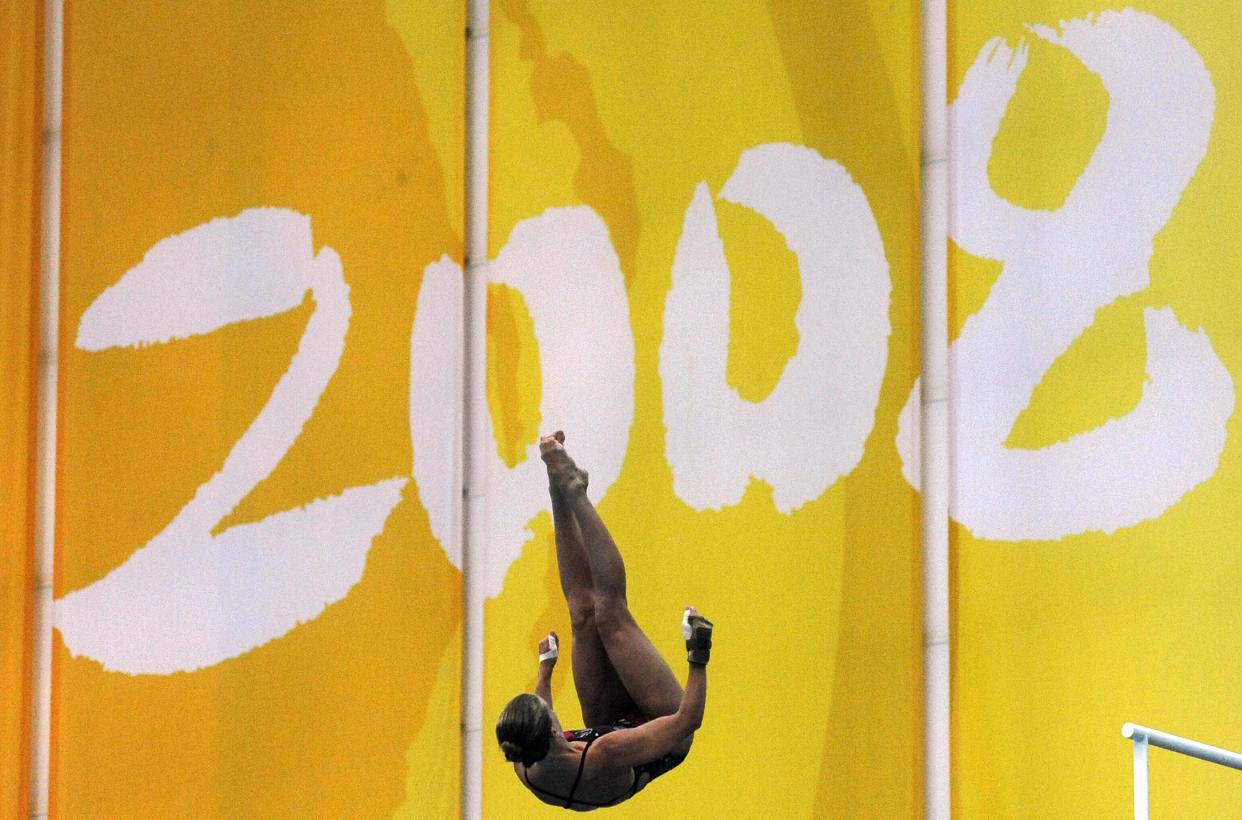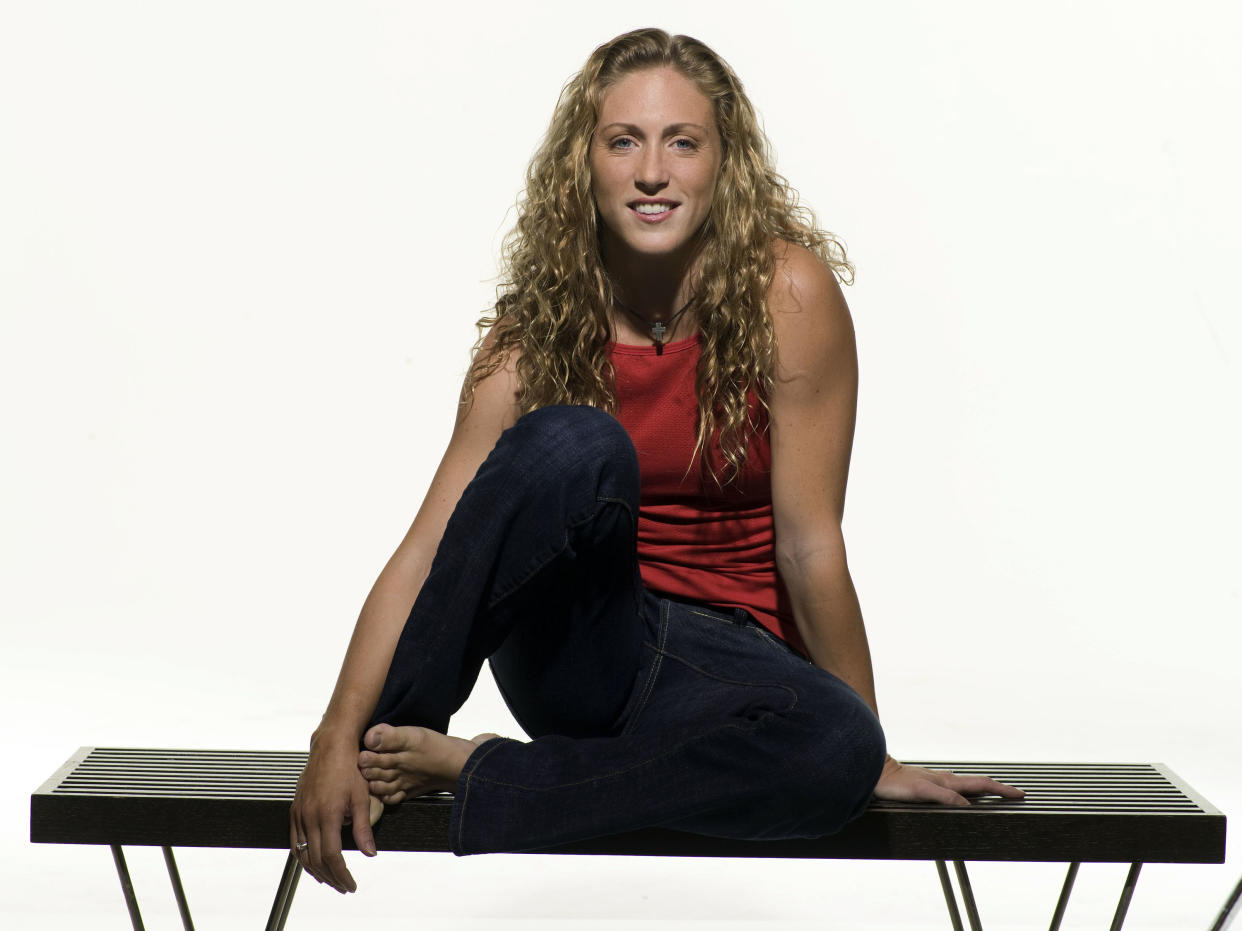Exclusive Q&A: Former American diver and Olympic gold medalist Laura Wilkinson

Former diver and Olympic gold medalist Laura Wilkinson is best known for her come-from-behind gold medal performance in the 2000 Olympic Games in platform diving.
But she strives to be a champion out of the pool as well.
Today, Laura is a follower of her faith, a devoted wife and mother, motivational speaker, writer, mentor and encourager.
SEE MORE: Everything you need to know about the upcoming Olympics
Laura's passion shines through her speaking as she takes her audience on a leap of faith. The lessons she has learned throughout the peaks and valleys of her diving career have given her an insightful outlook on life and have taught her how to be successful in and out of the pool.
You can read more about her on her site here.
Laura also took some time out to talk with AOL Sports about her career, the obstacles she overcame and the life lessons she learned from sports.
Q: Where did your passion for diving start at a young age?
A: Well, I started off as a gymnast. Actually, when it comes to divers, about 90 percent start in some sort of acrobatics. But I was always in love with the Olympics. I knew if that goal was going to be a reality I'd have to figure something out. I met with an ex-gymnast friend and she started diving, and I fell I love with it on the first day. I was 15. So, I initially started on club team. Then sophomore year of high school, I didn't go very far, but my club coach more or less explained how diving isn't as big in high school as it is in club. I pursued that full time and worked very, very hard, and I made my first national the next year.
Q: How did you develop such a love for the Olympics early on? Was it simply watching it on TV?
A: I loved them since I was little. I always dreamed about it. When I was little, I said I was going to be in the '96 Olympics -- I had it all mapped out (laughs). I thought they were amazing to watch. I always thought I was kind of weird having that dream. But now that I've met a lot of other Olympians, I've found that people were same way. I think it's interesting I wasn't alone in having that big dream, even at a young age.
Q: What pieces of advice would you give to a first-time Olympian?
A: There's so many things. The best advice would be something I heard from another Olympian from another country: When you get in, it's exciting. You have to soak it in. But when you get into completion, you have to realize it's just another game. They're the same dives you've done 1,000 times. The only thing that makes it all different is the hype.
Q: Six months prior to the 2000 Olympics, you suffered a pretty serious injury. How difficult was that process and did you learn anything from that tough time?
A: Three months before the Olympic trials, it was a typical warmup, flip, somersault, I jumped on the block of wood and I ended up in the ER. The doctor didn't take X-rays or anything. My coach and I were hoping it wasn't severe, but I was in agony. When I got home, my doctor X-rayed it and the foot was completely broken. And I had a stress fracture on my left foot as well. To fix it, we'd have to re-break everything and it'd be long recovery and there'd be no way I could go to trials. I experienced every emotion you can imagine -- mad, angry, even some relief. Now it's like, well, if I don't make it, people will know why. But it was my dream. Sometimes you only have one shot at things. I didn't want to look back and say I didn't try. My coach was with me. We both said, despite it all, let's go for it.
(Editor's note: Still in pain from her foot injury, she landed in eighth place after the first of five dives in the platform finals. She went on to earn the first gold medal for a female American platform diver since 1964.)

Q: Did you have a suspicion that the 2008 Olympics would be your last?
A: Yeah, I figured. I was 30. I had been married and we wanted to start family. It was hard. It was good and bad, really. I always wanted to finish on a great note. It was kind of a sad note to go out on, because I didn't finish way totally the way I wanted to, but it's sad too because you just love it so much.
Q: Have you thought about staying with the sport through coaching?
A: I coached a little bit when I was pregnant with my oldest. It was really hard for me to stand there on the pool deck and watch. Maybe if I'm further removed, I might consider it. Just not yet. I tried running, tried doing other things, but I miss the flipping. I love that. I love to flip. That's my thing (laughs).
Q: What are some of the biggest life lessons you took away from your athletic career?
A: A big one is, even in an individual sport, still nobody got there on their own. People help you emotionally, physically and you have a team. Especially at that level. If don't rely on those people, things get hard. When things get hard, that's when you need those people the most. You're going to face obstacles, but every obstacle has opportunity in it, you just need to find it -- if you're willing to go try and find it. Looking back, if I had not broken my foot, I don't think I would've won the gold medal. It's almost like this: Do you ever stare at something on the wall so hard for so long it almost starts to look a little blurry? Well, I stared at it for so long. I had my eyes on that goal for so long. And I thought more clearly after the injury. I was forced to watch an insane amount of video, and I was preparing my mind –- and I wouldn't have done all that as much if I didn't break my foot. I became mentally stronger. So that's how I learned the opportunity in an obstacle.


